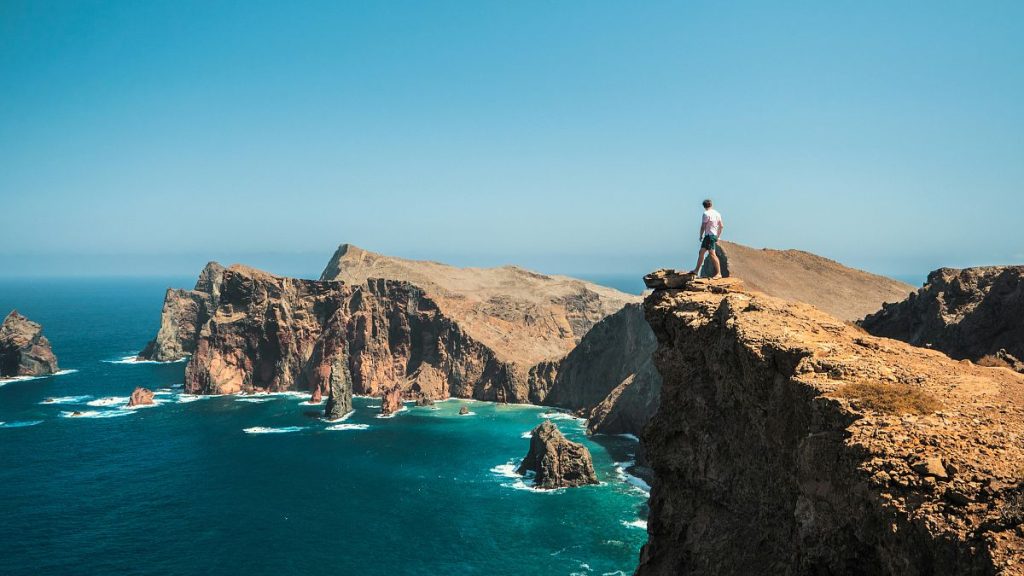Madeira has implemented a new fee for non-residents who wish to hike on some of its most popular trails starting from January 1, 2025. The decision is part of a broader strategy towards sustainable tourism on the Portuguese archipelago. The revenue generated from this fee will be utilized to fund conservation efforts in the region. Currently, the fee is applicable to seven of the most heavily visited routes, but it is expected to be extended to all recommended trails by 2025. Madeira’s regional secretary of Agriculture, Fisheries, and Environment, Rafaela Fernandes, has emphasized the necessity of this charge to protect the natural landscapes and manage the growing number of tourists visiting the area.
Tourists, both international and domestic, will be required to pay a €3 fee to hike on Madeira’s trails, starting from the age of 12. Initially, this fee is enforced on popular trails such as Pico do Areeiro, Pico Ruivo, Levada do Risco, Levada do Caldeirão Verde, Balcões, Levada do Rei, and Ponta de São Lourenço. After January 1, 2025, non-residents will have to pay to hike on over 30 routes managed by the Institute of Forests and Nature Conservation (ICNF) on Madeira. Failure to comply with this regulation can result in fines of up to €50. To make the payment process convenient, visitors have the option to pay through the regional government portal, Simplifica, or at on-site payment stations located along the trails.
The funds collected through this hiking fee will be directed towards essential activities such as trail maintenance, cleaning, and conservation efforts, as confirmed by Rafaela Fernandes. The surge in tourism in Madeira, especially during peak hiking seasons, has necessitated the introduction of this charge to regulate the influx of visitors and safeguard the natural beauty of the landscape. To ensure widespread awareness and understanding of this initiative, the authorities have initiated an awareness campaign to educate visitors about the purpose and significance of this fee. According to Fernandes, tourists have generally welcomed this move and are supportive of contributing towards conservation efforts.
This initiative to charge non-residents for hiking on Madeira’s trails is a proactive step taken to manage the impact of tourism on the delicate ecosystems and natural beauty of the region. By implementing this fee, the authorities are not only generating revenue for conservation efforts but also regulating visitor numbers to prevent overcrowding and preserve the trails for future generations. The introduction of the fee aligns with the broader global trend towards sustainable tourism practices that prioritize environmental conservation and responsible travel. Madeira’s decision to invest the revenue from this fee into trail maintenance and preservation highlights the region’s commitment to balancing tourism with the preservation of its natural heritage.
The new hiking fee in Madeira reflects a growing understanding of the need to protect natural landscapes and biodiversity while promoting tourism. By making visitors financially accountable for their impact on the environment, the region aims to encourage responsible behavior and sustainable practices among tourists. The revenue generated through this fee will contribute to the ongoing efforts to conserve and maintain the trails, ensuring that they remain accessible and enjoyable for future generations. This approach represents a shift towards a more holistic and environmentally conscious approach to tourism management, emphasizing the importance of balancing economic development with environmental stewardship.
Overall, the introduction of a hiking fee for non-residents in Madeira signifies a significant step towards promoting sustainable tourism and preserving the region’s natural beauty. By implementing this fee, the authorities are not only generating funds for conservation efforts but also actively managing visitor numbers to protect the delicate ecosystems and landscapes. The positive response from tourists towards this initiative shows a growing awareness and appreciation for the importance of supporting conservation efforts while enjoying the natural wonders of Madeira. This move sets a precedent for other tourist destinations to follow in implementing measures that prioritize environmental sustainability and responsible tourism practices.









